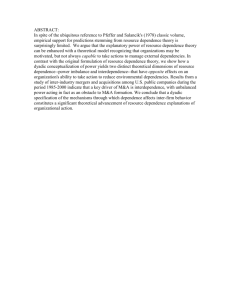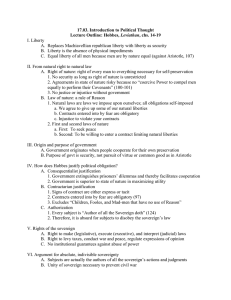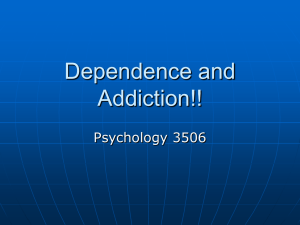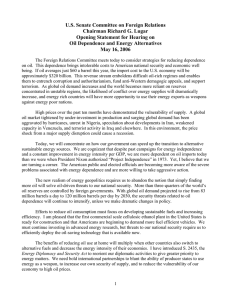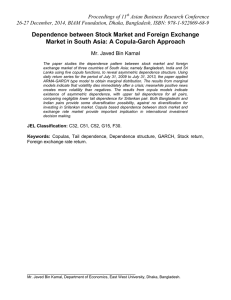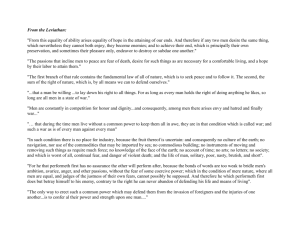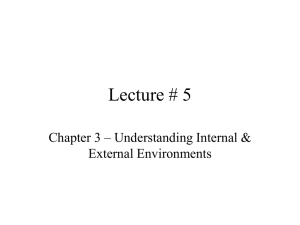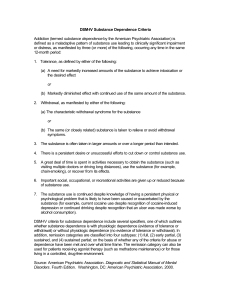Rousseau's "The Social Contract"
advertisement
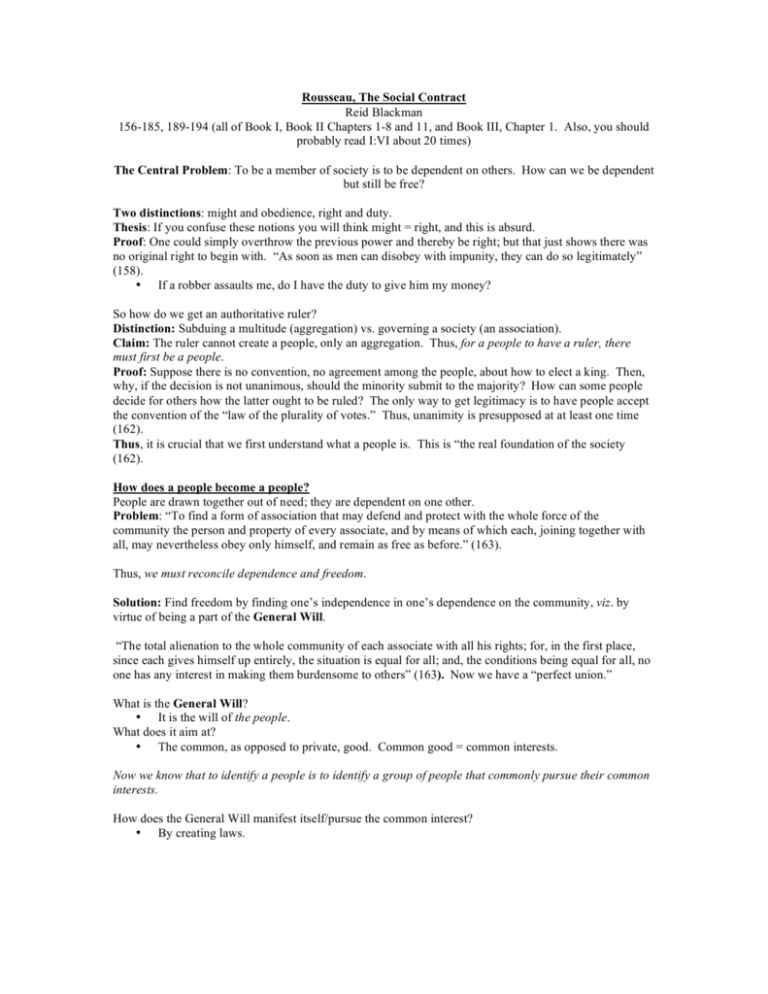
Rousseau, The Social Contract Reid Blackman 156-185, 189-194 (all of Book I, Book II Chapters 1-8 and 11, and Book III, Chapter 1. Also, you should probably read I:VI about 20 times) The Central Problem: To be a member of society is to be dependent on others. How can we be dependent but still be free? Two distinctions: might and obedience, right and duty. Thesis: If you confuse these notions you will think might = right, and this is absurd. Proof: One could simply overthrow the previous power and thereby be right; but that just shows there was no original right to begin with. “As soon as men can disobey with impunity, they can do so legitimately” (158). • If a robber assaults me, do I have the duty to give him my money? So how do we get an authoritative ruler? Distinction: Subduing a multitude (aggregation) vs. governing a society (an association). Claim: The ruler cannot create a people, only an aggregation. Thus, for a people to have a ruler, there must first be a people. Proof: Suppose there is no convention, no agreement among the people, about how to elect a king. Then, why, if the decision is not unanimous, should the minority submit to the majority? How can some people decide for others how the latter ought to be ruled? The only way to get legitimacy is to have people accept the convention of the “law of the plurality of votes.” Thus, unanimity is presupposed at at least one time (162). Thus, it is crucial that we first understand what a people is. This is “the real foundation of the society (162). How does a people become a people? People are drawn together out of need; they are dependent on one other. Problem: “To find a form of association that may defend and protect with the whole force of the community the person and property of every associate, and by means of which each, joining together with all, may nevertheless obey only himself, and remain as free as before.” (163). Thus, we must reconcile dependence and freedom. Solution: Find freedom by finding one’s independence in one’s dependence on the community, viz. by virtue of being a part of the General Will. “The total alienation to the whole community of each associate with all his rights; for, in the first place, since each gives himself up entirely, the situation is equal for all; and, the conditions being equal for all, no one has any interest in making them burdensome to others” (163). Now we have a “perfect union.” What is the General Will? • It is the will of the people. What does it aim at? • The common, as opposed to private, good. Common good = common interests. Now we know that to identify a people is to identify a group of people that commonly pursue their common interests. How does the General Will manifest itself/pursue the common interest? • By creating laws. The laws create equality in three ways, each of which are preconditions of Civil Liberty (179). 1. Relative material equality; freedom from unhealthy economic dependence. 2. Universality of the law: each treated equally by the law, freedom from dependence on capricious wills. 3. Each is respected under the law, going someway in satisfying amour-propre; freedom from psychological dependence. Moral Liberty as the embodiment of freedom/autonomy • Autonomy as self-given laws, one who obeys only one’s own will. o Moral liberty requires identification with the community, with the General Will; this is a form of subjective freedom. One must come to realize that this is one’s true will; a form of objective freedom. Subjective + objective freedom = all the freedom you want. So long as the subjects submit only to such agreements, they obey no one, other than their own will; and to ask how far the respective rights of the sovereign and citizens extend is to ask up to what point the latter can make engagements among themselves, each with all and all with each. Now we have a people – a free people – and thus the possibility of a legitimate leader (164). Don’t worry, the sovereign/general will won’t hurt you 1. It cannot will to hurt you (a private individual). 2. It cannot demand anything of us that is useless to the community. 3. It cannot will to hurt itself. But some worries 1. 2. A threat to the General Will: Factions (173). “The public must be taught to understand what they want…hence arises the need of a legislator” (180).


